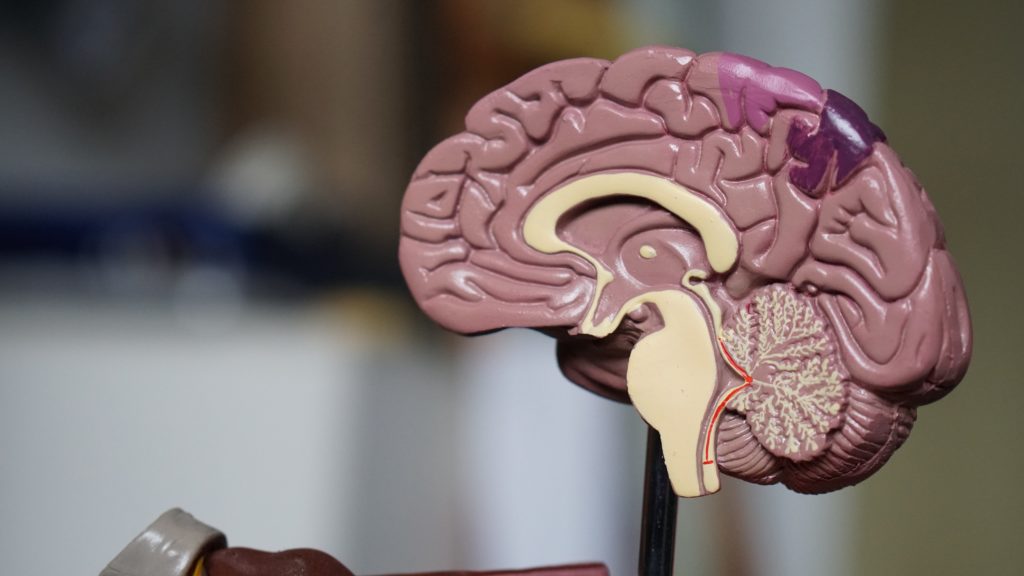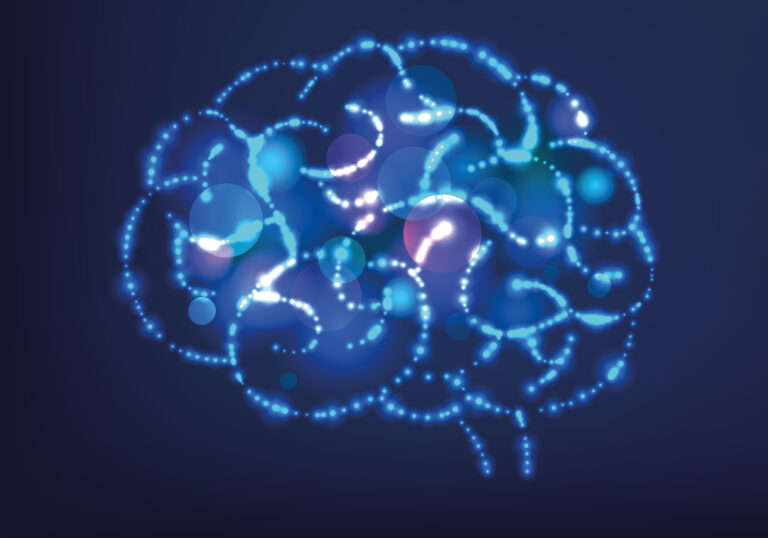
Advances in Understanding Alzheimer’s Provide New Hope

While the nation was justly focused on fighting the COVID-19 pandemic, Alzheimer’s Disease and dementia death increased 16 percent according to the Alzheimer’s Association. Alzheimer’s is the 6th leading cause of death behind stroke but causes more deaths than diabetes. Alzheimer’s Disease is responsible for most (about 70 percent) of dementia cases. Lifetime risk for Alzheimer’s is 1 in 5 for women and 1 in 10 for men and is often inherited.
Scientists continue to study this disease, which 6 million Americans are living with today. Research is advancing diagnostic and treatment strategies hoping to better identify, slow down, and even prevent memory loss and other symptoms in Alzheimer’s disease patients.
Alzheimer’s is thought to begin 20 years or more before symptoms arise, as the accumulation of protein fragment beta-amyloid clumps (plaques) outside of neurons and the accumulation of an abnormal form of the protein tau (called tau tangles) inside neurons develops. This progressive disease causes inflammation of the brain which begins to atrophy (shrink) and can no longer easily utilize glucose, it’s main energy source.
Our healthy brains have about 100 billion neurons and 100 trillion synapses, but when enough brain cells are damaged or destroyed, the brain cells can no longer “talk” to each other and dementia can progress to the point we not only suffer memory loss, but are unable to talk, walk, or even swallow. No cure exists, but medications and management strategies may help.
Diagnosing Alzheimer’s may get easier
Diagnosing Alzheimer’s disease is difficult because it depends on mental testing and ruling out other conditions with similar symptoms. By the time the diagnosis is clearer, the disease has often progressed for years. The first blood test designed to assist physicians in determining whether a patient is at risk or has Alzheimer’s disease was released by the company C2N Diagnostics late last year. The test, PrecivityAD, measures biomarkers that frequently reflect the presence of amyloid plaques in the brain as well as the presence of a gene variant that increases the risk of the disease. The blood test is easier and cheaper than other tests like specialized brain scans. The test is not yet approved by U.S. Food and Drug Administration (FDA), but looks promising as aid in identifying Alzheimer’s earlier and more accurately.
Slowing the decline
The Lancet published a 2020 report on dementia that estimates 40 percent of the worldwide dementia could be delayed or prevented through modifiable risk factors, such as smoking cessation, good nutrition, hypertension control, addressing obesity, diabetes control, avoiding excessive alcohol use, increasing physical activity and others. Education, adequate healthcare and addressing modifiable risk factors can lower the rate of dementia while also lowering the incidence of heart disease, stroke, kidney disease and other illnesses.
New treatments are on the horizon
While progress is promising, no new therapies for Alzheimer’s disease have been approved by the FDA since 2003. A new drug still in clinical trials by pharmaceutical giant Eli Lilly and Company could significantly slow the progression of Alzheimer’s disease. Researchers at the Johns Hopkins University School of Medicine are studying Ephexin 5, a protein that appears in greater amounts in the brains of people with Alzheimer’s disease. Blocking this protein in mice seems to prevent the development of memory loss. Currently there are about 200 active clinical trials studying Alzheimer’s and several promising monoclonal antibody treatments targeting different parts of the physiologic pathway that leads to the damage in this disease. By better understanding the physiology scientists hope to diagnose and intervene in this disease before the damage accumulates.
Current approaches focus on helping people maintain mental function, manage behavioral symptoms and slow down the symptoms of disease. Medications called cholinesterase inhibitors are prescribed for mild to moderate Alzheimer’s disease. These drugs may help reduce some symptoms and help control some behavioral symptoms. The medications are Razadyne® (galantamine), Exelon® (rivastigmine), and Aricept® (donepezil). A medication known as Namenda® (memantine), an N-methyl D-aspartate (NMDA) antagonist, is prescribed to treat moderate to severe Alzheimer’s disease. This drug’s main effect is to decrease symptoms, which could allow some people to maintain certain daily functions a little longer than they would without the medication. The FDA has also approved Aricept®, the Exelon® patch, and Namzaric®, a combination of Namenda® and Aricept®, for the treatment of moderate to severe Alzheimer’s disease.
Recognizing the signs and symptoms
The Alzheimer’s Association lists the following 10 warning signs and symptoms of Alzheimer’s disease. If you notice any of these symptoms yourself or in your spouse or parnter, please discuss them with your physician.
- Memory loss that disrupts daily life
- Challenges in planning or solving problems
- Difficulty completing familiar tasks
- Confusion with time or place
- Trouble understanding visual images and spatial relationships
- New problems with words in speaking or writing
- Misplacing things and losing the ability to retrace steps
- Decreased or poor judgment
- Withdrawal from work or social activities
- Changes in mood and personality
Getting checked can help determine if the symptoms you are experiencing are due to Alzheimer’s or some other and perhaps treatable condition. An early diagnosis gives you access to treatment options to slow progression. Medical research has increasingly proven a connection between a healthy heart and brain, so lifestyle changes such as stopping smoking, regular exercise, a healthy diet are very important. Staying mentally and socially active and engaged seems to preserve cognitive function, so stimulate your minds and be active, Boca friends!
More Recent Healthcare News

Every year we celebrate Doctor’s Day and Nurses Week, but there’s one more recognition event that’s just as important. Administrative Professionals Day is April 24th this year and I want to be sure to bring special attention to three incredibly special members of the Boca Grande Health Clinic family. Jonna Foos, Director of Operations Jonna […]

April, the birth month of James Parkinson, is Parkinson’s Disease Awareness Month. Parkinson’s is a degenerative syndrome that results in the gradual loss of brain circuitry involved in movement, thinking and behavior. According to the National Institutes of Health (NIH), the first clear medical description of Parkinson’s Disease as a neurological condition was written in […]

March 30th marks a special day on our calendar – Doctor’s Day! It’s a time to honor those who dedicate their lives to caring for us. At the Boca Grande Health Clinic, it’s the extraordinary team of board-certified physicians – Dr. Raymond A. James, our Medical Director; Dr. Bret Kueber, the Assistant Medical Director; and […]

Ask a Doc: Kicking Colon Cancer in the Butt
March 22, 2024According to the American Cancer Society, the lifetime risk of developing colorectal cancer is about 1 in 23 for men and 1 in 25 for women. The death rate from colorectal cancer has been dropping in older adults for several decades. Unfortunately, colorectal cancers now rank as the leading cause of cancer death in men […]

